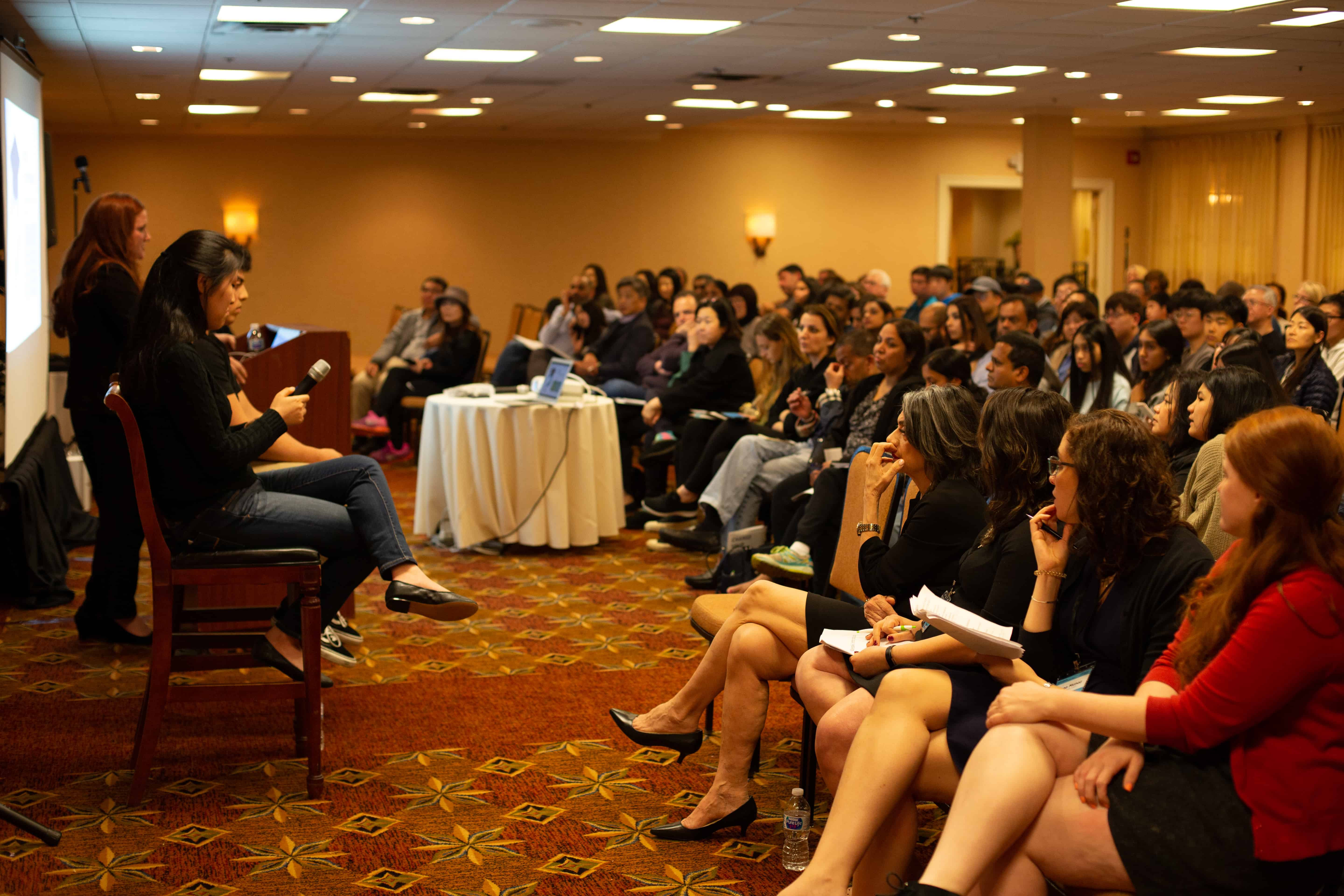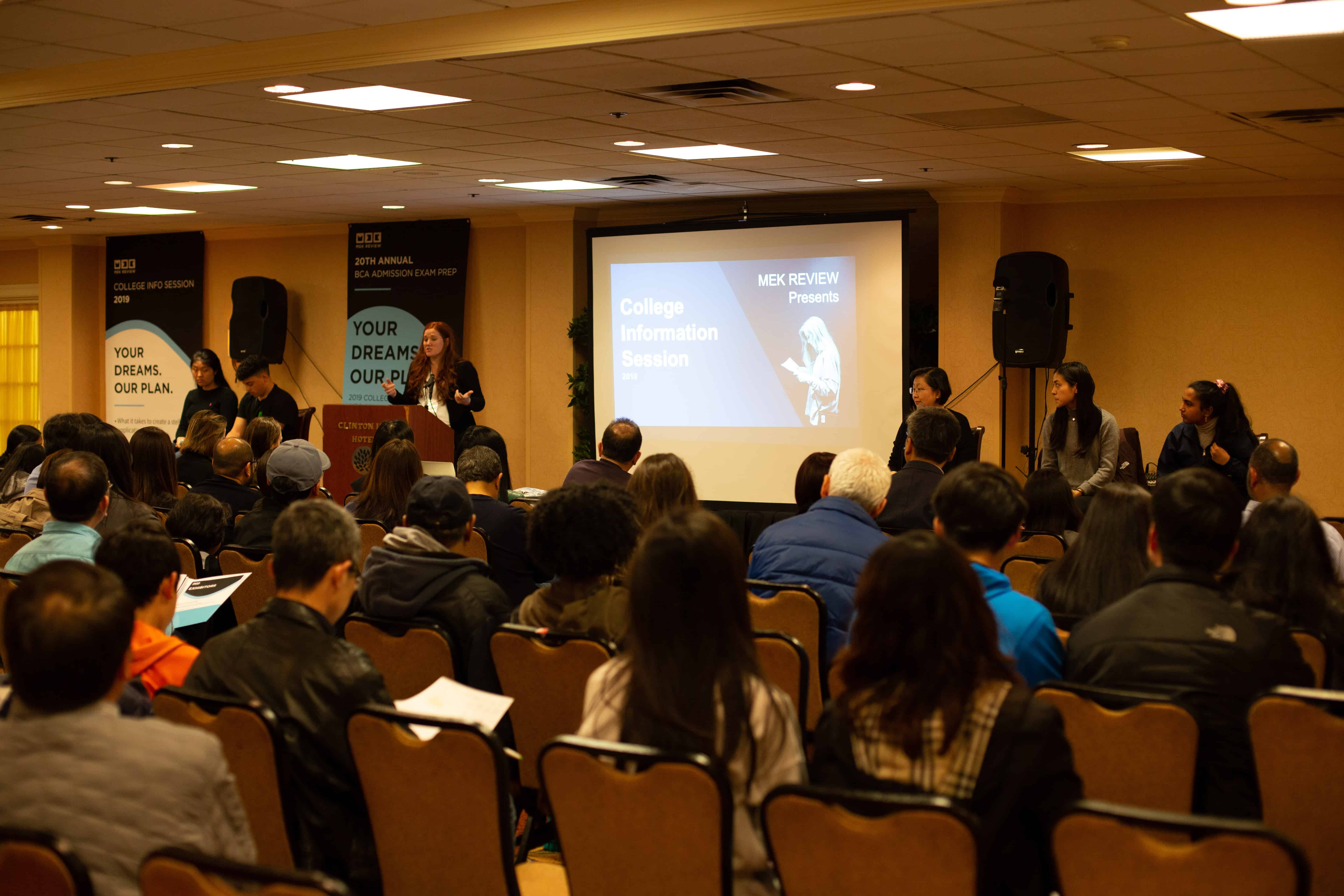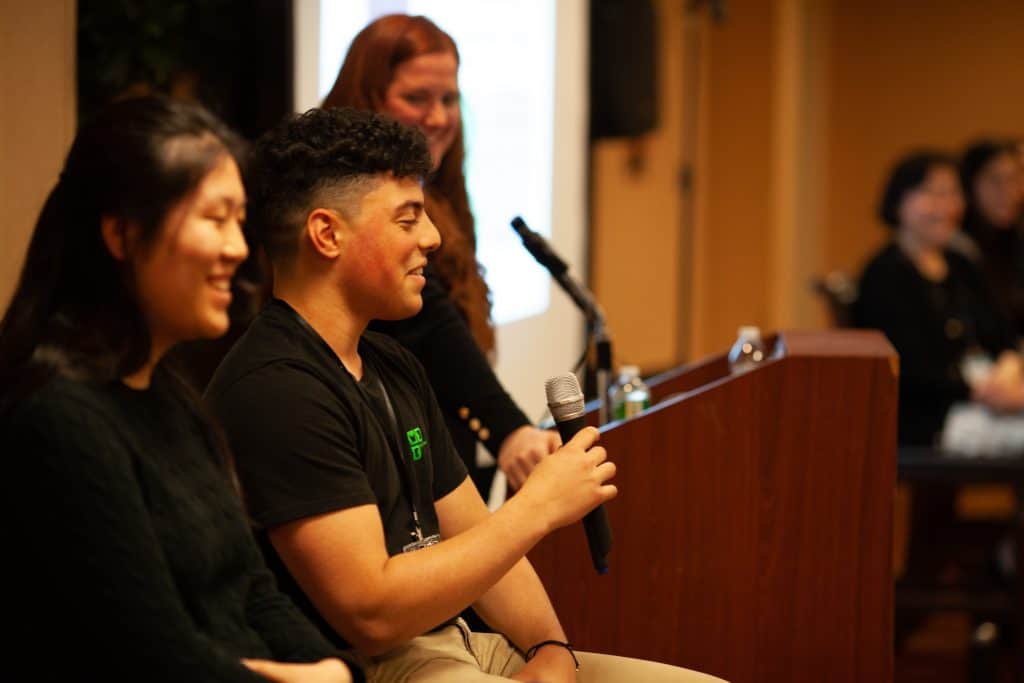
College Info Session: 2019 Seminar Recap
MEK Review’s 11th Annual College Info Session

MEK Review’s 11th Annual College Info Session was a huge success! Thank you to all who attended and participated.
We told parents and students all about the college admissions process.
From selecting school choices to creating a stellar application essay, attendees learned how MEK Review guides every step of the way, while also hearing the latest trends for 2019. Participants heard from our Head College Counselor Brigitte Chang, MEK student alumni who have recently been accepted to top schools, our expert college essay coaches, and specialists for specific programs such as art school and service academies.
It was a night packed with essential information, expert advice, and a whole lot of fun!

If you were unable to attend, don’t worry!
Here is a quick recap of what you missed and what are the best next steps to take:
MEK Review’s Student Outcomes in 2019

MEK Review’s Roadmap to College (RMC) one-on-one consulting program helps students step by step through the application and essay writing process. We are so proud of this year’s RMC students who were accepted into Ivy Leagues, top 100 universities, Honors programs, services academies and accelerated medical programs!
Top Factors for College Admissions
When applying to college, students need to be aware of the most important factors for College Admissions.
The top 3:
- Overall Grades
- Grades in AP or IB classes
- SAT/ACT test scores
It’s essential for students to raise or maintain a high GPA. This is the #1 factor looked at by college admissions. As #3, SAT and ACT scores are also extremely important. Students need to give themselves plenty of time to properly prepare.
Check out the other top 10 factors here.
Creating a Realistic College List
When applying to colleges, one of the first steps is to create a solid list of prospective colleges. We walked attendees through how to create the perfect list.
Our top tips:
- Your list must be a mixture of Reach, Target, and Safety schools. They can NOT be all Reach schools.
- Don’t just pick colleges that “sound” great or have a prestigious reputation. Do some research, visit schools, talk to counselors, and pick schools that seem like a great fit for your passion, interests, and future plans.
- Don’t forget to consider honors programs, scholarship opportunities, and financial aid.
What are Reach, Target, and Safety Schools?
Reach Schools: These are your dream schools. These colleges are highly competitive, but you would love to attend. They usually have an acceptance rate of less than 50% and your competition may have just as strong or even stronger application than you.
Target Schools: Prospective colleges in which your grades, scores, and accolades make you an appealing candidate. As a competitive college, admission is not a sure thing, but with preparation and a strong application, your chances of admission are solid.
Safety Schools: These are colleges in which you would be considered a highly competitive candidate, and your chances of admission are high. Not to be dismissed, picking safety schools is an important part of your list as they may offer the best financial aid package, scholarship, or entry into honors programs.
Ultimately, your choice of Reach, Target, and Safety schools for your final college list depends upon your individual resume. However, keep in mind “Super Reach” schools such as Harvard, MIT, Princeton, and University of Chicago. These Ivy League or top 10 schools have such low admission rates that they are reach schools for any candidate. So make sure your list does not include all Ivy Leagues!
Letters of Recommendation
Letters of recommendation are ranked as #5 highest factor for college admission officers. They show admission officers a more complete picture of who you are as a student, community member, and person. Needless to say, these letters need to be taken seriously. While the content of the letter is out of your control, there are several ways to make sure you have personal, strong recommendations from the right people. Here are the top tips our head counselor and student alumni shared with attendees:
Our top tips:
- Guidance counselor recommendations are not only a must, they are the very important. Make sure to take the time to get to know your counselor and let them get to know you. The more personal their letter the stronger it will be considered.
- For teacher recommendations, pick a teacher that knows you well and preferably teaches a class that is specific to your academic interest. While upperclassmen teachers are best, if you have a more personal relationship with a sophomore teacher, don’t be afraid to ask them for a letter. However, generally stay away from your freshmen teacher.
- If the college allows you to send recommendations from people other than teachers or guidance counselors, don’t be afraid to ask a coach, director, or employer (not relatives or friends). Even if the recommender is outside of your academic interest, if they know you well, they will be able to tell the admissions committee something about your character, leadership abilities, or skills that will be valuable.
- When considering who you will ask, always go with the recommender that knows you best over the one with the strongest credentials. A college cares about you, not your recommender. A person who knows you will be able to give a much more personal, convincing, and compelling letter than an acquaintance with an impressive background.
For more guidance, check out our blog on how to get a great recommendation.
Extracurricular Activities
Ranked as the #8 most important factor, extracurricular activities are a way for your to showcase to a school your interests, leadership abilities, dedication, and character. Our student alumni and head counselor told attendees how to best use their activities to boost their college applications.
Here are top highlights:
- Quantity is not important. It’s all about quality. Colleges don’t care if you did 1000 hours of community service on 20 different projects or participated in every club your school offered. They are more impressed by seeing you contribute to a few activities in a meaningful way.
- If you don’t have many traditional extracurricular activities to highlight, there are creative ways you can emphasize what you’re passionate about. For example, one of our students, didn’t belong to any sports team, music club, or school organization, but she had every year participated in a traditional Chinese tea ceremony. She videoed one of the tea ceremonies and published it on Vimeo.
Application Essays
 Our college essay coaches walked attendees through brainstorming to conclusions to show every step in creating a stellar college application essay.
Our college essay coaches walked attendees through brainstorming to conclusions to show every step in creating a stellar college application essay.
Here are a few tips:
- Make sure your essay is all about you! Not your relative, your role model, your friend, but you.
- Your essay should be a narrative – it should tell a story about a significant moment in your life. It should NOT be your resume in paragraph form. For more tips on the structure of your essay, read this blog on do’s and don’ts.
- An application essay should show personal growth. Whether you’re writing about a time your failed or succeeded, it should show the admission officer how the experience helped you change and mature.
- Your essay should have flawless grammar. However, the tone should be warm and inviting, not formal and cold.
- You should have at least two people review your essay, but not too many people or people too close to you. You need an objective reviewer who knows what a college admission officer is looking for. For example, at MEK, our college counseling students work with our college essay coach and our head college counselor.
- Never have someone else write your essay. Admission officers can tell and often ask for other writing samples to compare.
- Pay extra attention to supplementary essays required by a college. Admission officers will look at these essays even more carefully.
The Journey to College
This is just a glimpse at everything we covered at the Info Session!
For more information, contact us to set up an initial consultation, where we can answer all your questions about college including specific programs such as art school, service academies, honors programs, and dual/accelerated medical programs.
To get started mapping our your road to college, join our Roadmap to College (RMC) program or Application Essay Writing program. Call 855-346-1410 today to register.
We can’t wait to hear from you.



